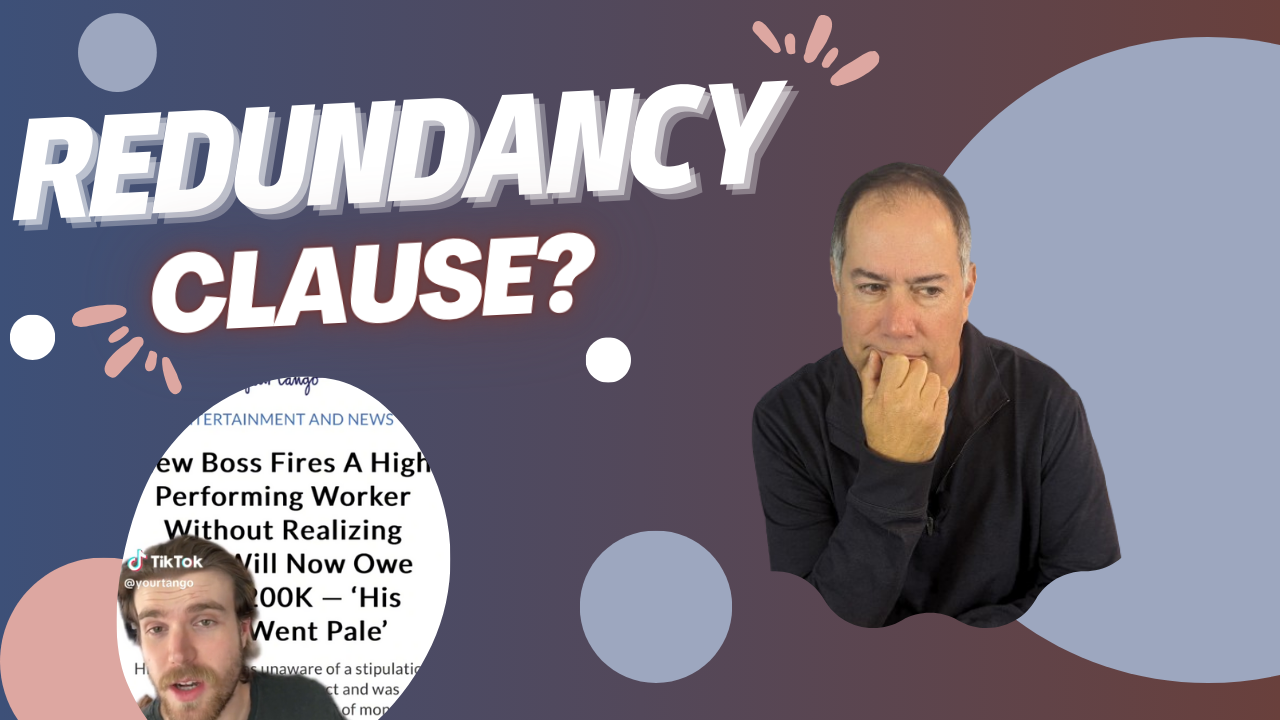Bad Boss Part 10 | What is a Redundancy Clause?
This is the 10th video in our bad boss series. Have you heard of a redundancy clause? If not, don’t worry—Matt hasn’t either. But the main takeaway of this video is to make firing and hiring decisions based on anything but merit.
There are tons of people out on social media giving business advice. Some of it is good advice, but most of it isn’t good. In this new series watch CapForge’s owner react to different advice videos. He’s an expert in all things business and has 20+ years of experience under his belt. Some of the things he reacts to might even surprise you!
Video Transcript:
Business Advice Video:
A new boss fired a high-performing co-worker without realizing that they now owe him $200,000. He [the employee] had worked in a fairly large company for 25 years. Since he had worked there for so long he had extensive corporate knowledge, was very well paid, and well tenured. But that all came crashing down when a new boss was hired. This new boss had a habit of firing people that he didn’t like and replacing them with people that he knew. This employee knew that he wasn’t in the boss’s inner circle so he saw the writing on the wall and decided to look for a new job. Which was a good move because the boss decided to get rid of him. What the new boss didn’t know is that since the company decided his role wasn’t needed anymore they needed to pay him a redundancy fee. Redundancy pay is made to an employee in the event that their job becomes redundant. The boss agreed to pay the redundancy that was outlined in the employee’s contract without actually knowing the amount. And the boss’s face went pale when he realized it was $200,000. The employee happily took his money and moved on to his job.
Matt’s Review:
Well, I guess maybe he’s talking about the United States and this was something that happened somewhere else. Cause I’ve never heard of a redundancy clause that allows somebody to get paid when their job goes away. That to me sounds pretty unreasonable. Things change all the time and if your job is not something that the company still needs I’m not sure why that’s the company’s issue to pay you. But maybe I sound like an evil boss.
I think the bigger point is. If you’re a boss if you’re manager of other people and you have the ability to let them go, it is never okay and it’s never a good idea to capriciously let people go just because you don’t personally like them. Or you would prefer to work with people you’re friendly with. Or promote people that you have something to gain by giving them a promotion. Or just cause you like them better. It should always be done on the basis of merit. You should promote people who have earned it, who can do the best job, even if they’re not your best friends. And at the same time, if you’re friends with somebody but they’re not the best fit or they haven’t earned it, then they shouldn’t get a promotion just because they’re in your inner circle. And a company that lets somebody make hiring and firing decisions based on preference versus merit is that that’s bad for them. That’s their fault for allowing a manager to make hiring and firing decisions without oversight, without making the case on why the person deserves to be let go or deserves to be hired.
I think the lesson here is bad bosses can definitely cause a lot of problems not making good hiring and firing decisions. In this case, there was an added cost but that’s not a typical case. But also not the main reason to not let someone go because you might get caught paying more than you realize. The main reason not to let a good employee go just because you don’t like them is it’s bad for everyone. And a manager is making decisions that way is that’s really the person who needs to be course-corrected or let go if they’re not able to manage effectively by weighing the merits of the person rather than their preferences in who they work with.








